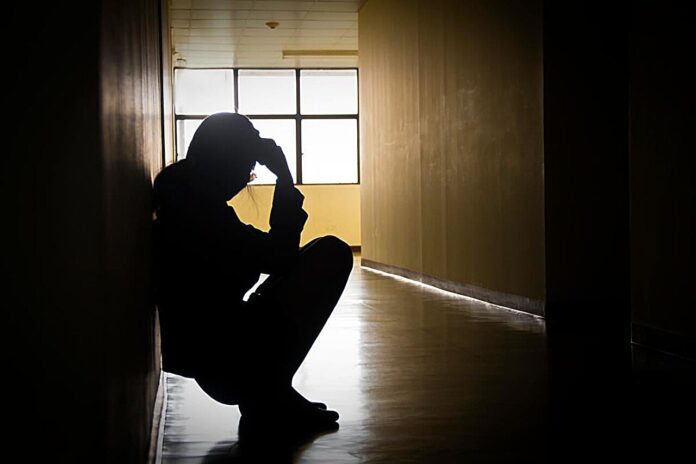Loneliness and infection risks are emerging as critical public health concerns, with new research linking social isolation to a heightened risk of diseases such as heart disease, stroke, type 2 diabetes, and increased susceptibility to infections. Conducted by researchers from the UK and China, the study analyzed blood samples from over 42,000 adults enrolled in the UK Biobank. The findings highlight the biological underpinnings of loneliness, identifying five specific disease-causing proteins that are influenced by social isolation.
How Loneliness Affects Physical Health?
Loneliness is more than just an emotional state; it has profound physiological consequences. According to the study, individuals experiencing chronic loneliness exhibit elevated levels of inflammatory markers, which can weaken the immune system. This immune dysregulation makes lonely individuals more vulnerable to infections and chronic illnesses.
The study found that the abundance of five proteins—known to cause or exacerbate diseases—was directly associated with loneliness. These proteins influence inflammation, metabolic processes, and cardiovascular health, thereby increasing the risk of a broad spectrum of diseases.
The Role Of Social Connection In Immunity
Human beings are inherently social creatures, and social interactions play a crucial role in maintaining overall health. When individuals are socially isolated, the lack of interaction can disrupt hormonal balance, leading to increased stress levels. This, in turn, affects the immune system’s ability to fight off pathogens effectively.
Researchers emphasized that social connections can act as a buffer against the harmful effects of stress and inflammation. Regular interaction with friends and family, engaging in community activities, and participating in social groups can significantly improve an individual’s mental and physical well-being.
Loneliness And Its Link To Heart Disease
One of the most striking findings of the research is the link between loneliness and heart disease. Chronic loneliness has been shown to elevate blood pressure and increase the levels of cortisol, a stress hormone. Over time, these factors contribute to the hardening of arteries, increasing the risk of heart attacks and strokes.
Additionally, lonely individuals are more likely to engage in unhealthy behaviors such as smoking, excessive alcohol consumption, and poor diet, further exacerbating cardiovascular risks.
Mental Health And Susceptibility To Infections
Loneliness is closely linked to mental health disorders such as depression and anxiety. These conditions, in turn, weaken the immune system, making individuals more susceptible to infections. The research revealed that lonely individuals are more likely to suffer from recurring infections and take longer to recover from illnesses.
The mental health implications of loneliness are particularly concerning in the post-pandemic world, where social distancing and isolation measures have significantly increased feelings of loneliness among people of all ages.
Insights From The UK Biobank Study
The UK Biobank study is one of the most comprehensive investigations into the health impacts of loneliness. By analyzing blood samples from a large and diverse group of participants, the researchers were able to identify specific biological markers linked to loneliness.
These findings provide a foundation for future research aimed at developing targeted interventions to mitigate the health risks associated with loneliness. For instance, therapies that reduce inflammation or balance stress hormones could be explored as potential treatments for individuals experiencing chronic loneliness.
Loneliness Among Vulnerable Populations
Certain groups are more vulnerable to the effects of loneliness, including the elderly, individuals with disabilities, and those living in remote or underserved areas. For older adults, loneliness can accelerate cognitive decline and increase the risk of dementia.
Programs aimed at fostering social inclusion for these populations are crucial. Community centers, social clubs, and digital platforms can help bridge the gap for individuals who may struggle to maintain social connections.
The Economic And Social Costs Of Loneliness
Loneliness doesn’t just affect individuals; it has broader societal implications. Healthcare systems bear a significant burden due to the increased prevalence of diseases linked to loneliness. Addressing loneliness could, therefore, lead to substantial savings in healthcare costs and improve population health outcomes.
Governments and organizations worldwide are beginning to recognize loneliness as a public health issue. For example, the UK appointed a Minister for Loneliness in 2018, and several countries have launched national campaigns to combat social isolation.
Strategies To Combat Loneliness
Combating loneliness requires a multifaceted approach that involves individuals, communities, and policymakers. Some effective strategies include:
- Encouraging Community Engagement: Local governments can organize events and activities that bring people together.
- Promoting Mental Health Awareness: Educating people about the mental and physical health risks of loneliness can encourage them to seek help.
- Leveraging Technology: Virtual platforms can help individuals connect with others, particularly in remote or isolated areas.
- Fostering Intergenerational Relationships: Programs that connect younger and older generations can reduce loneliness for both groups.
- Workplace Initiatives: Employers can create opportunities for team-building and social interaction among employees.
What Individuals Can Do?
While systemic changes are essential, individuals can also take steps to mitigate the effects of loneliness. Building and maintaining strong relationships, volunteering, and engaging in hobbies or group activities can provide a sense of purpose and belonging.
Reaching out to others, even through small gestures like a phone call or a shared meal, can make a significant difference. It’s also important to recognize when professional help is needed and to seek therapy or counseling if loneliness leads to severe mental health challenges.
By understanding the profound impact of loneliness on physical and mental health, society can take proactive steps to foster social connections and build supportive communities.



:max_bytes(150000):strip_icc()/Long-Covid-Depression-GettyImages-1319976569-2000-9c7968d310184bb29d1a595197197816.jpg)